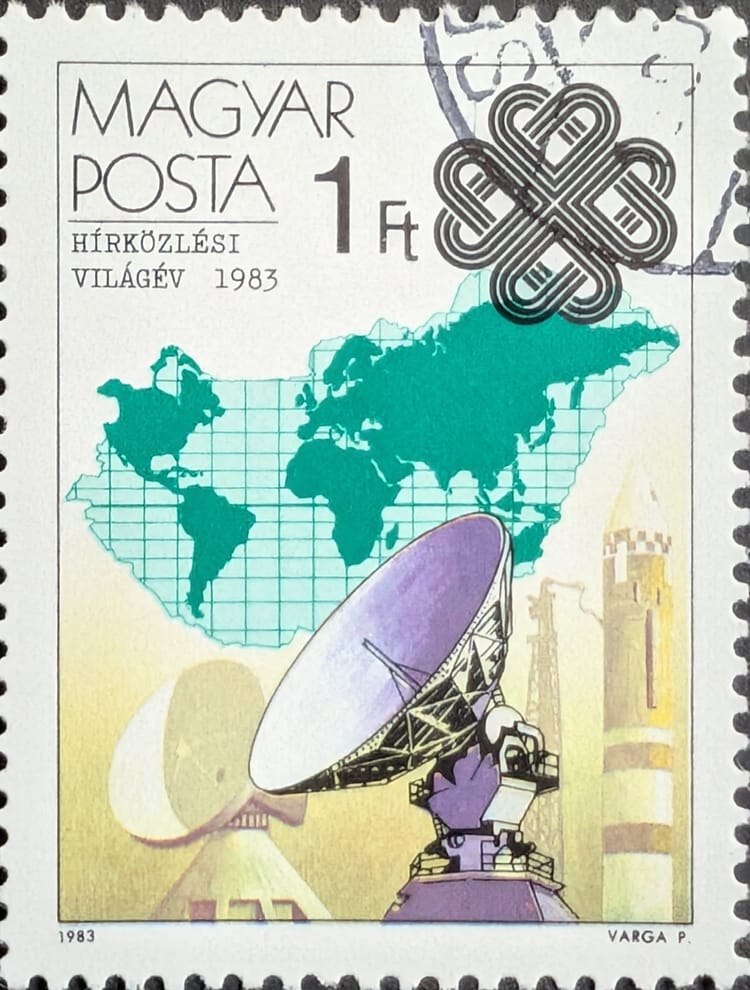Hardware is Not Software: Marketing Mixups in EO/RS and Launch

And the Marketing Shall Differentiate Ye!
Nearly four years ago, I listened to a few leaders of the legion of space-based Earth observation/remote sensing (EO/RS) companies springing up at that time. Of the six companies these speakers represented, only two were operating EO/RS satellites for business and not for demonstration purposes. All of them talked about the need for their companies to provide differentiated products. Most of them spoke of their in-house analytics products/services as a differentiator without any irony.
One CEO went so far as to say the company, Capella Space, was a software company, that Capella’s software was the critical differentiator. I was puzzled at the disconnect from reality in that statement since Capella obviously was building its satellites and sensors. And it would be tasking and controlling those satellites (operating them). The concept seemed to be equivalent to a smartphone manufacturer saying it was a software company because of all the crapware it had installed on the phone.
However, since Capella still hadn’t deployed any satellites in 2017, the lack of necessary hardware (the satellites and radar sensors) probably forced Capella to rely on its software and data. So, perhaps there was some truth to that claim. A few years later, Capella had changed from being a data company to one that was “an information services company that provides on-demand sub-0.5m very high-resolution (VHR) Synthetic Aperture Radar (SAR) Earth observation imagery.”
In 2021, a year in which Capella’s competitors offer resolutions at .25 and .15 meters, even that precise statement has changed:
Our mission is to make timely Earth observation an essential tool for commerce, conservation, and well-being. A world that shares a richer understanding of life on our planet will be a better place to live; we contribute to that knowledge by documenting change across the globe in entirely new and powerful ways.
Which, frankly, sounds a lot like Planet’s shorter mission statement. I’ve already written about the issues with EO/RS company mission statements--that’s not something I will re-hash in this analysis. Instead, I want to focus on the trend of space companies stating they are one thing (a software company) when they aren’t. Capella Space decided, based on its changing statements through the years, that saying it was merely a software or data company was not helping it.
It’s Inigo Montoya All Over Again
Still, there are other companies out there who are trying to make themselves seem more special than their peers. Here’s a whopper just stated this month:
“At the foundation of our platform is the software that helps us optimize the cost structure of our business, from our supply chain to the materials and the labor that go into operating our launches and our company, to the systems that allow us to automate the manufacturing and the launch of our rockets. Astra fundamentally is a software company that is understanding and collecting data about every aspect of our business all the time, and that allows our engineers to focus on improving the efficiency, productivity, and cost structure of our space operations.”
Surprise! Astra, the company that is building and launching rockets, “fundamentally is a software company.” If everything listed above justifies giving Astra a “software” label, other launch companies are then software companies. They essentially are building and manufacturing rockets in ways very similar to Astra.
Astra’s statement is wildly inaccurate. I do not think it means what Astra’s CEO thinks it means. Going back to fundamentals, let’s just reference Wikipedia’s definition of a software company:
A software company is a company whose primary products are various forms of software, software technology, distribution, and software product development.
More importantly, based on Ben Thompson’s observations over at Stratechery, a software company has zero marginal costs. As he explained in “What is a Tech Company?”:
Then, in 1980, Congress added “computer program” to the definition list of U.S. copyright law, and software licensing was born: now companies could maintain legal ownership of software and grant an effectively infinite number of licenses to individuals or corporations to use that software. Thus it was that Microsoft could charge for every copy of Windows or Visual Basic without needing to sell or service the underlying hardware it ran on.
This highlighted another critical factor that makes tech companies unique: the zero marginal cost nature of software.
First, it’s an excellent article--worth reading in full.
What Thompson means is that a company like Microsoft can spend money to create a program, such as Excel or Word. Once the program works, it can be replicated--endlessly--and sold over and over again. That’s zero marginal costs--it costs the company nothing to duplicate and sell a “unit” of software over and over.
That concept is a keystone in software development and the “Silicon Valley Mindset.” Spend once and receive not just a considerable return but a nearly infinite one on the copies that follow. Software companies could sell updated software with new “features.” A significant plus--the hardware required to run this software has improved, become smaller, and cost less over time. According to Thompson, chipset makers work similarly, investing initially in a foundry and chip design, using nearly zero-cost material (silicon) to replicate and sell the chip. This type of business is what makes investors happy.
In Space, There are No Zero Marginal Costs
With the above definition and characteristics in mind, do they apply to Astra (or any rocket manufacturer)? The following assumptions will apply:
- The rocket factory will need major investment.
- The rocket prototypes and launches will need investment.
- Building the final configuration of rockets requires money.
- Transporting materials to the factory requires money.
- Transporting the rocket from the factory to the mobile launcher requires money.
- Moving the mobile launcher requires money.
- Scaling the rockets costs money.
- Updating the rockets costs money.
- Quality control costs money.
- The engineers operating the equipment, rocket, launcher, etc., require money (they are expensive).
You get the idea...a rocket manufacturer and launch service provider are not even remotely close to a software company. Similar steps and characteristics are why Capella probably stepped away from its software mantra. Astra can’t even use the internet to deliver its product, a la Netflix or Steam. Nearly every step requires that these companies spend money. They are, at their core, hardware companies that also operate their hardware.
To be clear, Astra is interesting only because it is one of the few smallsat launch companies to have launched its rockets (unsuccessfully, so far). That’s in a field of “more established” smallsat launch companies, such as Firefly, Orbex, or Relativity Space, none of whom have launched a rocket. That each one of Astra’s competitors keeps drawing out the time for launch works to Astra’s advantage. The fact that an operational competitor, Rocket Lab, is planning to launch a larger rocket should worry all of them about the actual smallsat launch market size.
With that in mind, smallsat launch companies like Astra should focus on the basics--launch. What people, specifically customers, want to know about each of these companies is:
- When will they launch?
- How much will it cost to use their service?
- What can they launch?
- How often will they launch?
Customers don’t care about the process unless it impacts their business/mission. When a customer uses Microsoft’s Word, that person only wants the tool to help craft the text--and stay out of the way the rest of the time. It normally works. Google Docs is the same. Why, then, draw focus to an aspect that just can’t apply, stating that a rocket company is a software company? Is it to get investors excited? While I understand some investors are a special kind of stupid, would even those buy into that line? Why say something so obviously non-applicable about your company?
Astra would do well to re-think that part of its story as it displays a profound lack of knowledge of the business it’s attempting to break into (and a fundamental failure to distinguish between hardware and software). Even better, Astra could just demonstrate it can successfully launch not just one rocket, but many, for less than its competitors.




Comments ()